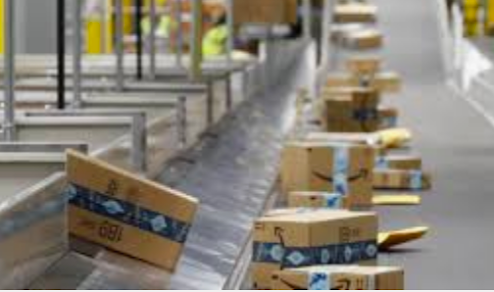(Drivebycuriosity) - There is a crusade against Big Tech. Politicians, antitrust lawyers (trust busters) and so-called "progressives" want to curb power & growth of Amazon, Google, Apple & Facebook. The anti-tech campaign is ungrateful, contra-productive and makes the current Covid-19 crisis even worse.
The pandemic would be even less bearable without products & services from the global mega-companies. Since March many people behave considerate and stay at home; they avoid meeting people to reduce the risk of getting infected. And lockdowns & quarantines minimize possible contacts with other people even more. As a result many people rely on cheap
& fast deliveries by Amazon which keep them fed and supplied while social distancing. In Spring, during the first Covid-19 wave in the US, Amazon prioritized the stocking and delivery of essential items to ensure the fastest delivery of household staples, medical supplies, and other critical products. Even in the peak of the pandemic Amazon has been capable to support millions of customers and to deliver a huge amount of goods to everywhere in the US in very short time. Amazon could fulfill the gargantuan task of supplying America in a crisis because of her sheer size, a dense network of fulfillment centers and a lot of experience in stocking goods and in logistics.
Amazon saved potentially many lives - especially from elderly and disabled individuals - by making it possible for them to shelter at home during the current pandemic, shop online and receive necessary goods at their front door in a short time.
Amazon`s success helps many other companies - including small retailers (Amazon`s competitors) - to survive the crisis. Amazon offers a platform for any company (or individual) to sell products online. The e-commerce giant also supplies logistic services for them, including storage, packing and transporting. The giant invested more than $18 billion to help independent businesses grow their sales on Amazon this year. With the help of Amazon other companies, including even small retailers, are also able to sell products nationwide - and often globally. Around 60 percent of Amazon’s sales come from third party vendors — i.e. other retailers — many of whom would not exist but for Amazon’s platform. During this holiday season, American small- and medium-sized businesses sold nearly 1 billion products in Amazon’s store. According to the Financial Times “independent merchants on Amazon’s vast marketplace will make more than $200bn of sales this year, and tens of thousands of them have revenues of more than $1m a year” (ritholtz ). So, far from destroying U.S. retail, Amazon has enabled U.S. retail to thrive and to survive the pandemic (truthonthemarket).
The global economy gets also a lot support from Amazon`s cloud services (AWS) in the pandemic. AWS gives other companies, even small start ups, cheap access to huge computer power and artificial intelligence (machine learning). Companies worldwide are enabled to process a flood of data created by all the organisatory problems caused by the pandemic. AWS - and other Amazon services - help many companies to stay in business during the pandemic.
Amazon`s success story has also inspired the grocery industry to become more efficient & competitive ( reason.com). Even before COVID upended grocery shopping, traditional grocers were adapting to the popularity of online grocery delivery through services such as Peapod, Instacart, and others. Had Amazon not jumpstarted this process when it acquired Whole Foods and launched its AmazonFresh service, COVID lockdowns would surely have been even more difficult for everyone.
Amazon also supports US job market and added 427,300 employees between January and October, pushing its work force to more than 1.2 million people globally, up more than 50 percent from a year ago. Its number of workers now approaches the entire population of Dallas, report the New York Times ( nyt). Without Amazon the recession would be even worse.
The other technology giants also deliver valuable support. Staying at home is made easier by Apple`s products & services which are a window to the world during the pandemic. They help people to stay connected, informed, creative, and productive while staying at home. Affordable iPhones, iPads & Macbooks, which possess massive computer power, make it possible to work at home, to study at home and to entertain themselves. By supporting remote working, which is more efficient & productive than office work (less commuting), the Apple infrastructure fosters economic growth and mitigates the recession.
Google´s search engines make it easier to keep up with the latest news about the virus (and to minimize risks of infection). Google`s search engines deliver the latest information on COVID-19 cases in local areas, which local businesses are open, or what online courses will help people to prepare for new jobs. Google maps are used to find doctors, testing clinics, shops & restaurants.
Facebook`s & Twitter`s social networks help also people to stay in touch, to share ideas and allow them to gather, exercise, hold business meetings, have happy hours, celebrate special occasions, and console distant loved ones from within their own homes ( reason ). We will likely never know how many lives have been saved by these services, many of which are free of charge (cei.org).
The so-called progressives and other trustbusters claim that Big Tech hurt small businesses and restrain innovation, but - quite contrary - they support them by connecting them to new markets that they could not access before. Today small businesses are able to take advantage of the major tech firms’ size and scale to grow domestically and compete globally with affordable and secure services.
Without Big Tech more people would get infected, the pandemic would spread even more, more people would die and the recession would be severe.









































